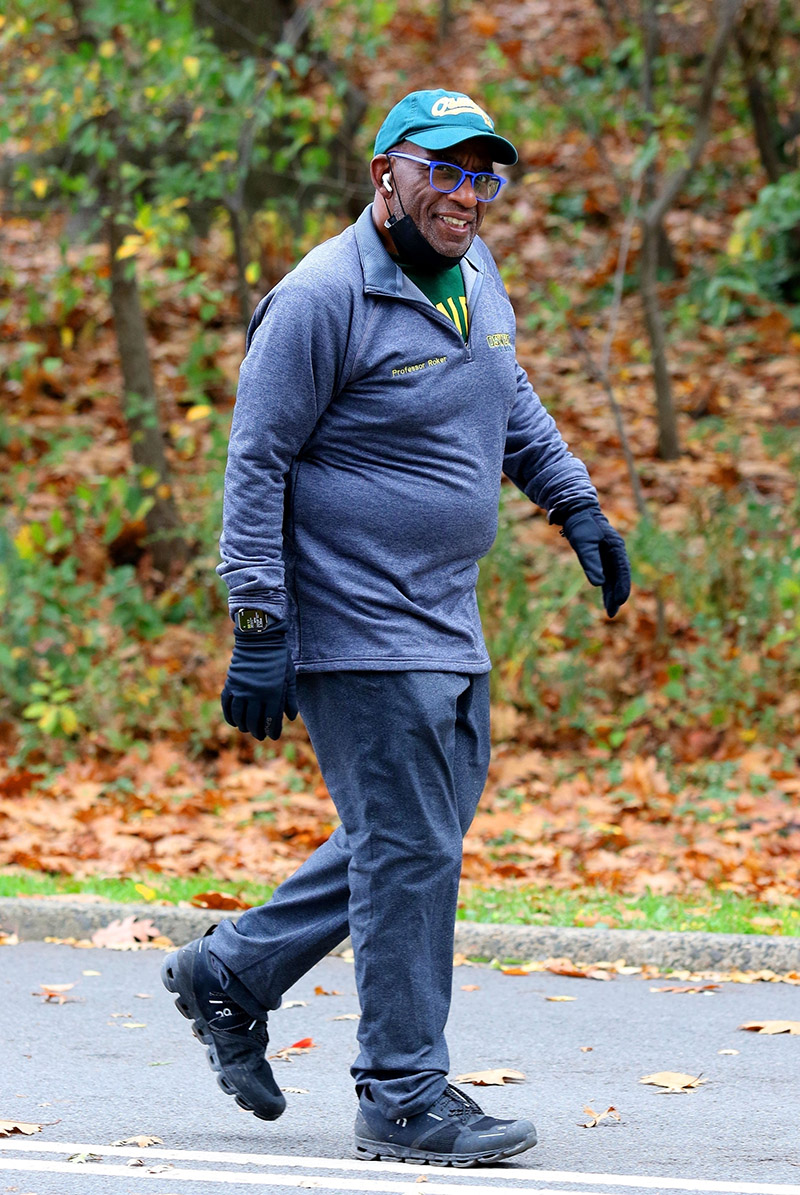
Al Roker was all smiles and waved to the cameras while doing his daily power walk in Manhattan’s Central Park after recent prostate cancer surgery.
The 66-year-old weather anchor on NBC’s Today announced he had been diagnosed with prostate cancer earlier this month.

He just returned to work following prostate cancer surgery, and he is in good spirits, but he has a word of warning for men.
“Everybody should get checked,” he told Toofab.com while leaving NBC Studios on Monday. “You need to check with your doctor.”
Roker, who had his prostate and nearby lymph nodes removed 2 weeks ago, said he feels great and he doesn’t have a word of complaint.

“Nothing bad,” he replied when asked what the hardest part of the recovery was. “It’s all good, all good.”
Roker credited his surgeons and the love and support from his family and friends for helping him get through his recovery phase so quickly. Prostate surgery recovery usually takes a month before you can return to work.
“I feel really good, I really do. Usually you’re dead when you get all this love,” joked Roker, who prefers to receive his flowers while he’s still alive.
Roker further revealed that he will have his prostate-specific antigen (PSA) levels checked in January, and will continue to be screened every six months for the next five years.
A PSA blood test is a specific test to detect prostate cancer. Even though Roker’s prostate was surgically removed, PSA blood tests are done within the next few years after surgery to make sure there isn’t a biochemical recurrence that suggests cancer involving seminal vesicles or distant lymph nodes that weren’t surgically removed.
Prostate-specific antigen (PSA) levels in the blood should remain undetectable for 10 years.





